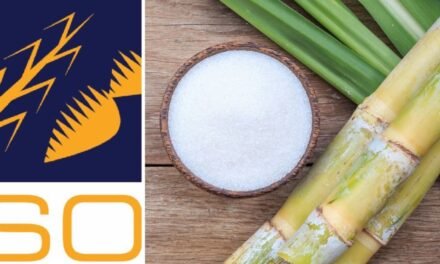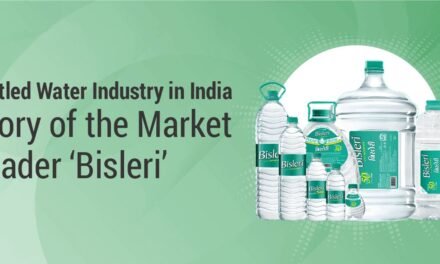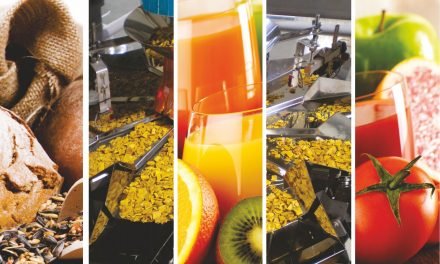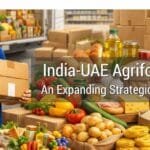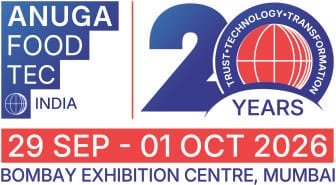Food habits have been changing, but post-COVID, both consumer expectations and regulatory framework led to the new regime. So now the question is being asked – does your product portfolio meet the consumers’ expectations and conform to new regulatory requirements? Rajat K. Baisya discusses the Post-COVID trends in food processing industry.
I have been writing about the impact of the pandemic on the food processing industry in India. In a couple of articles, I tried to cover the typical business issues like operations, supply chain, distribution and financial impact on food processing industry and, more importantly, on MSME sectors as well as on international trade and the way forward. But in a broader sense, we have been witnessing much more significant changes that we can say as Post-COVID trends in food processing industry emerging from the new scenario that we are witnessing regarding health and hygiene.
- The food formulations now will have to provide new health, hygiene and nutritional standards significantly different from what we have had so far.
- The food and drink formulations will now be expected to offer solutions not only for physical wellbeing but also for mental and emotional wellbeing.
- Products will be challenged to respond to new definitions of trust, quality, and added nutritional information.
- The export market will also be changing in terms of new regulations and health indications.
- Global players will take the lead and also redefine the categories.
- Smart factories with AI, Machine learning and IoT applications will come up.
This month I would like to discuss about the new trends in the food processing industry. Needless to say that these emerging Post-COVID trends in food processing industry are also the result of new lessons that consumers all over have learnt during the pandemic with which we are still grappling with no end in sight. The regulatory bodies worldwide have become more conscious about their role, and from that thought, they are framing more stringent new laws and regulations to control the food processing industry. In India, of course, the regulatory body has no infrastructure to control and regulate the industry because of the size and complexity that we have.
Pandemic has created indescribable fear in the minds of the consumers, and many started believing that anything processed may not be good for their health, hygiene and wellbeing. This fear is not totally unfounded when consumers are also exposed to many instances of adulteration and rampant sales of spurious and substandard products in the market.
Many large food processors, including multinationals, are now reviewing their product portfolio in terms of their real value for providing nutrition and health. The latest in the list is none other than Nestle, the world’s largest food company. Just because they are the largest, their stake in the global food business is also the highest. Therefore, they will have to take the lead to become an example to others that proactively. Nestle has reviewed the nutritional value, health and hygiene factors for their brands in real terms, and based on that, they will review their portfolio strategy to be futuristic so that they become relevant to changed business scenario. Other larger players are also being seen to actively reviewing their portfolios. Portfolio management is required to allocate resources behind each brand and SKUs in business.
Still, that work is usually done based on economic and financial parameters, and we have different models like the Ansoff matrix, and BCG matrix and more holistic models are BSC (Balanced Score Card). But these are useful, and businesses usually use these models in the current environment and current performance. Post-COVID trends in the food processing industry and consumers’ concerns about the ecosystem, environment, sustainability, circular economy, etc. will make many food products in the current environment obsolete very soon and as such, we need new food products, and not many can cope up with this kind of fast-changing scenario that is emerging globally.
We have seen that some food processors are manufacturing the same thing as before, but their advertisement messages claim all kinds of benefits like nutrition and immunity without real value-added. FSSAI has to rise to the occasion and investigate to ensure that documentary evidences validate all claims. The way you can see that edible oils are now being promoted that one will get the impression that you can use as much oil in cooking as you would like to make your food tastier and healthier. Some edible oil brands not only claim that they are healthy and tasty, but they also claim that their oil is smart, balanced, and an immunity booster. A food formulation can be balanced, but how can an edible oil be balanced? Can we ask what they are balancing?
You will find that the advertising messages on food products from industries like Nestle will be distinctively different from other producers of these products. It is because Nestle has a huge portfolio of local brands, regional brands and global brands; the complexity, therefore, is also huge. Through this critical review of their portfolio, they will address their complexity.
Food habits have been changing, consumers and new regulatory environment making existing food formulations not fit for the new business environment. The question is being asked, which needs to be addressed by all food processors
Food habits have been changing, consumers and new regulatory environment making existing food formulations not fit for the new business environment. The question is being asked, which needs to be addressed by all food processors – does your product portfolio meet consumers’ current expectations and if they conform to new regulatory requirements. Industries have resorted to regular review of their food products in terms of formulation and packaging, and a cost, but that was part of their periodic exercise to improve business performance and be competitive. But post-COVID, both consumer expectations and regulatory framework led to the new regime. Some of the businesses have displayed knee jerk reactions like the claims that their products are immunity boosters.
Marketers often ignore the requirement to validate the misleading claims that manufacturers make. Whereas the responsible marketing campaigns need to establish documentary evidence of these claims. There are several cases pending which were initiated by the Advertising Council of India. Our regulatory framework is so weak in terms of implementation capabilities that food processors usually get away with it. Examples are galore. These need to be checked.
The food formulations now will have to provide new health, hygiene and nutritional standards, which are significantly different from what we have had so far. The food and drink formulations will now be expected to offer solutions not only for physical wellbeing but also for mental and emotional wellbeing
The food formulations now will have to provide new health, hygiene and nutritional standards, which are significantly different from what we have had so far. The food and drink formulations will now be expected to offer solutions not only for physical wellbeing but also for mental and emotional wellbeing, which will create a new foundation for healthy eating.
Products and Brands will be challenged to respond to new definitions of trust, quality, and added nutritional information if they have to be fit for new market requirements. Simply claiming benefits in marketing and advertisement messages will not be enough with solid documentary evidences for the same. Corporations are, therefore, well advised to review the portfolio if the products they are selling meet the additional criteria to be called wholesome food for the physical, mental, and emotional well-being of the consumers. In this exercise, many will fail, and more particularly, the MSME sector with limited resources will be facing the challenge. MSME thus will require support and help from others, including large processors and government, to ensure safety and quality under the new environment.
The export market will also be changing in terms of new regulations and health indications. There will be new demand for processors from the importers. Both merchant exporters, as well as manufacturer exporters, will have to review their portfolios. The food ingredients manufacturers and exporters, as well as fresh fruits, vegetables, spices, condiments, dry fruits, cereals, and pulses will have new guidelines to be adhered to. In that respect processors, exporters will have to undergo a review of the processes and documentation.
For example, some importers in Europe and the USA possibly will insist on automated production to reduce human interfaces to exclude cross-contamination possibilities. Still, others will demand environment friendly systems and packaging. And still, others will demand practices like fair trade practices and equal opportunity employers as well as regulations related to engaging child labour. Some of these are already in force, but those will be enforced now. Smart factories with AI, Machine learning and IoT applications will come up.
Dabur is said to be setting up such a factory in Madhya Pradesh with an investment of Rs 600 crores. The more stricter regimes are going to be seen forthcoming, and processors will have to be more conscious to build their capabilities. Large global players in that game will take the lead and also redefine the categories. And Nestle being the global leader, already has taken the initiative; others will have to follow. Altogether there is going to be a new ball game.
Author is the chairman of Strategic Consulting Group and served as Professor and Head of the Department of Management Studies, IIT Delhi. Photo by Laura James from Pexels.


